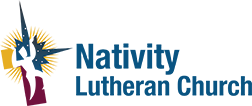Leah Reddy- Children’s Faith Formation grades 1-4, Musikgarten Leader
I recently attended a workshop at the YWCA in Minneapolis entitled Microaggression and Bias 101. The workshop is a part of a series of workshops about racial injustice. The facilitators made sure the attendees felt they were in a safe space. Ruben and Deqa did an excellent job guiding the conversation without dominating it, and they also provided several activities to spark conversation.
In one of the activities, we looked at media images. Most were product labels and advertisements, but there were also some memes. The memes were incredibly offensive, but the some of the advertisements were more subtle. For example, Dove has products with labels that read “for normal to dark skin.” Is white skin normal and dark skin abnormal? Of course not, but that is the impact of the message on the label.
That word impact is extremely important when examining the difference between impact and intent. For example, when I hear a voice speaking in accented English, if my first question is “Where are you from,” my intention might be curious and earnest, but the impact could be harmful. Oftentimes, microaggressions may be intended as a compliment (your English is so good), but the impact can be quite different.
So, what should you do when you think you may have said (or be about to say) something that was a microaggression? Slow down. Get feedback. Recognize where and when microaggressions show up. Pause, acknowledge and correct. Seek out diverse media sources.
What should you do if you see a microaggression happening? Provide your full attention. Respectfully ask clarifying questions, hold others accountable and break the silence.
Deqa recommended reading White Fragility by Robin D’Angelo and listening to the podcast Seeing White. I plan to do both of these in the near future (update 10/28/19, I am on Episode 9 of Seeing White and I am more than halfway through the book White Fragility).[hr]
Heather Anderson- Faith Formation- Youth
In September I attended a training on Microaggression with Nativity CYF Staff members Kelly Sherman-Conroy and Leah Reddy.
I could tell you how we took time to define words, such as:
- Bias – prejudice in favor of or against one thing, person, or group compared with another, important to note that we all have these, the key is to recognize them as biases and not allow them to become microaggressions.
- Power – Who has the ability to name and define.
-The ability to set the rules, standards or policy.
-The ability to decide.
- Privilege – The unearned social, economic and/or political power.
- Oppression – The inequitable distribution of power.
- Cognitive bias – The systematic error in judgment and decision making common to everyone. This can be based on a number of issues and problems.
I could tell you how we took the time to dissect advertising for racial bias’ and disparities. How seeing each of these individually, I would not have the same emotional response, but the flood of imagery in such a setting led me to anger, injustice and, disgust. Compelling me to look at the way I have contributed to a world where messaging such as this was deemed appropriate.
I could tell you how important it is to understand the impact of our words and actions as much as we understand our intent. Our intent is about us, or in this case me. Our impact is on how our actions affect others.
I could tell you that interpreting and reacting to microaggression is not a one-step or one-time action. It will take us slowing down to see the world around us, to ask for and receive feedback, to think about what we are thinking about, to pause, acknowledge and correct when we are wrong. To seek out diverse sources of media such as books, podcasts, TV shows, and news.
I could tell you how vital it is to support others in their experiences by providing our full attention, to acknowledge the strength and contributions of others, to ask clarifying questions if you are confused, to hold your self and your peers accountable, to speak up (for others) and to step back (let their power shine, not yours).
I will tell you that no matter where you are in your work of overcoming microaggression and systemic racism, we always have more work to do. We are called to continue to read, learn and grow in ways that we share God’s courageous love. This will require diligence and grace in how we treat ourselves and others.


